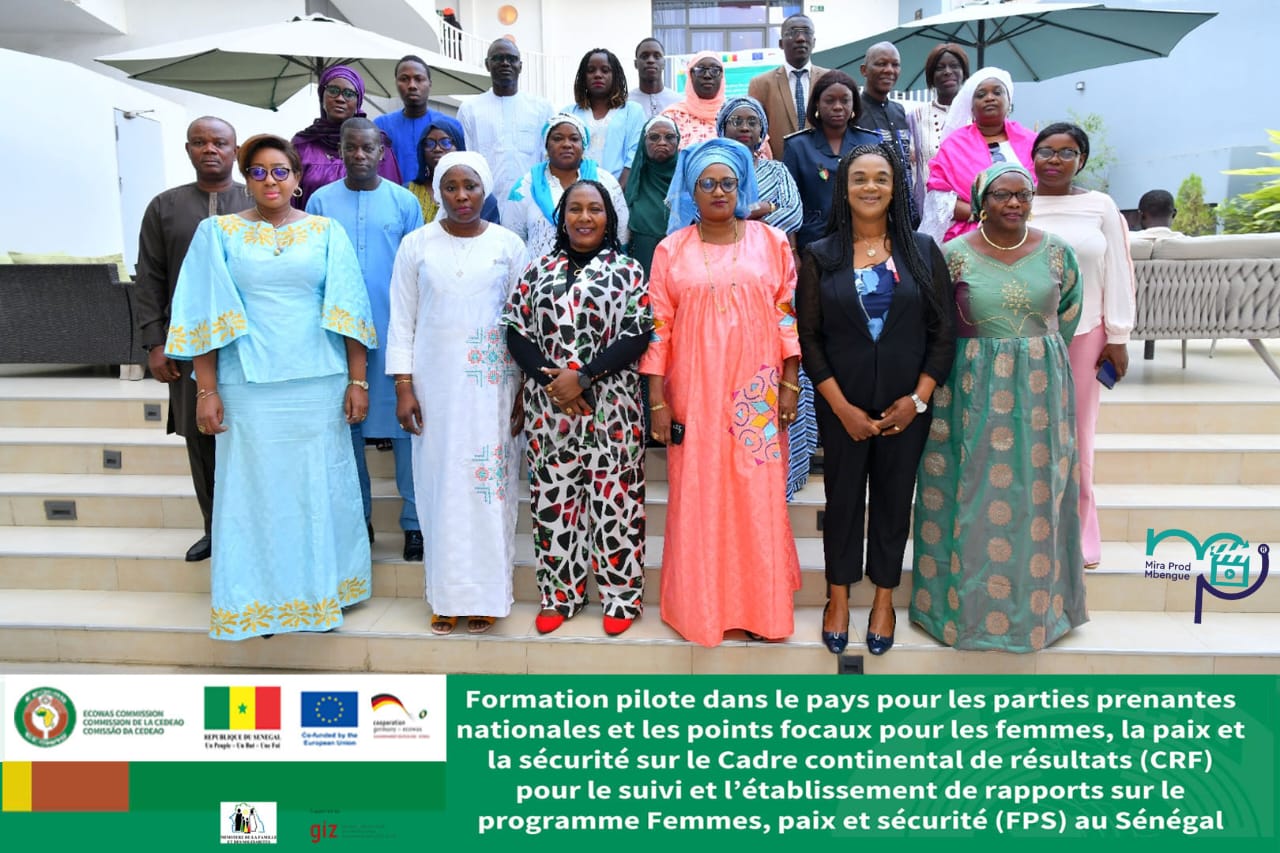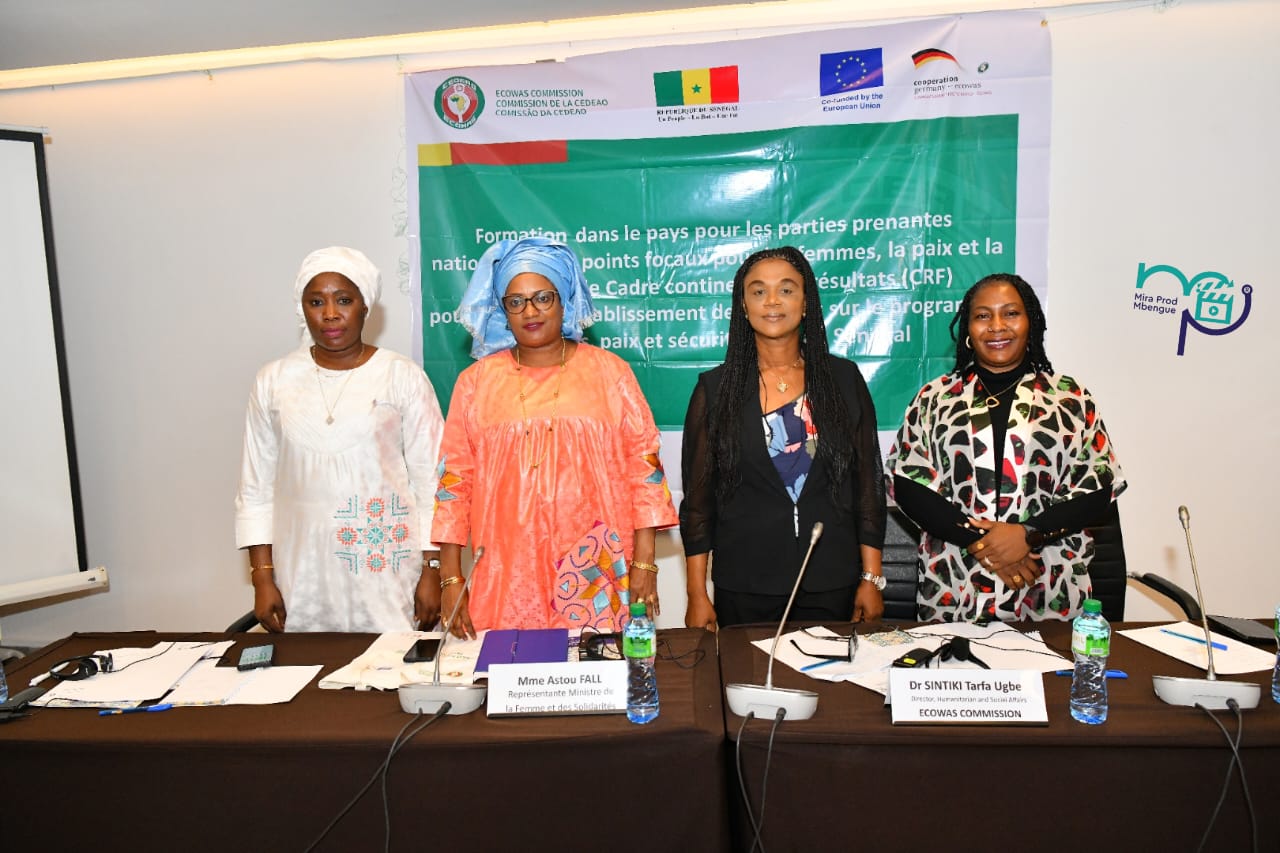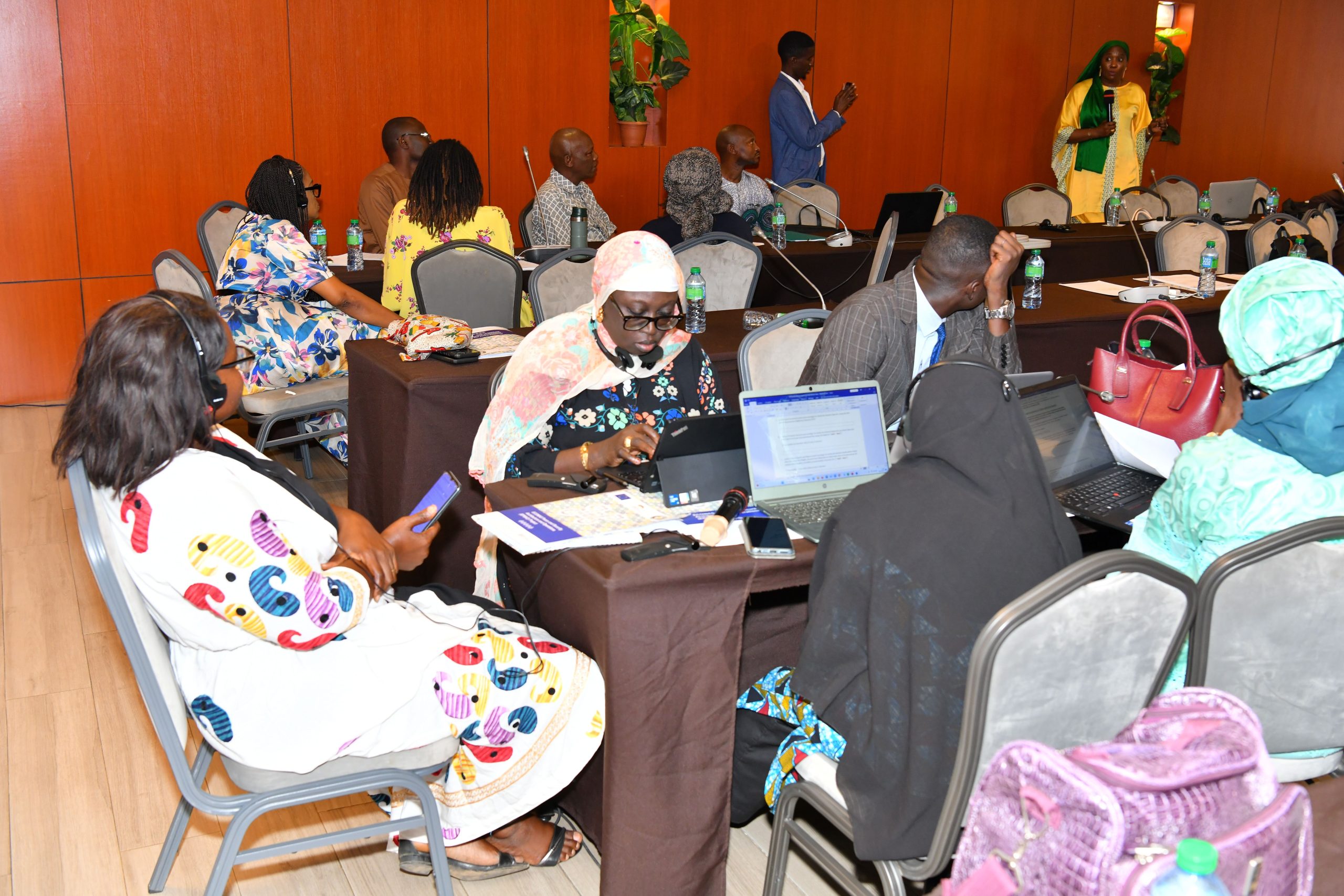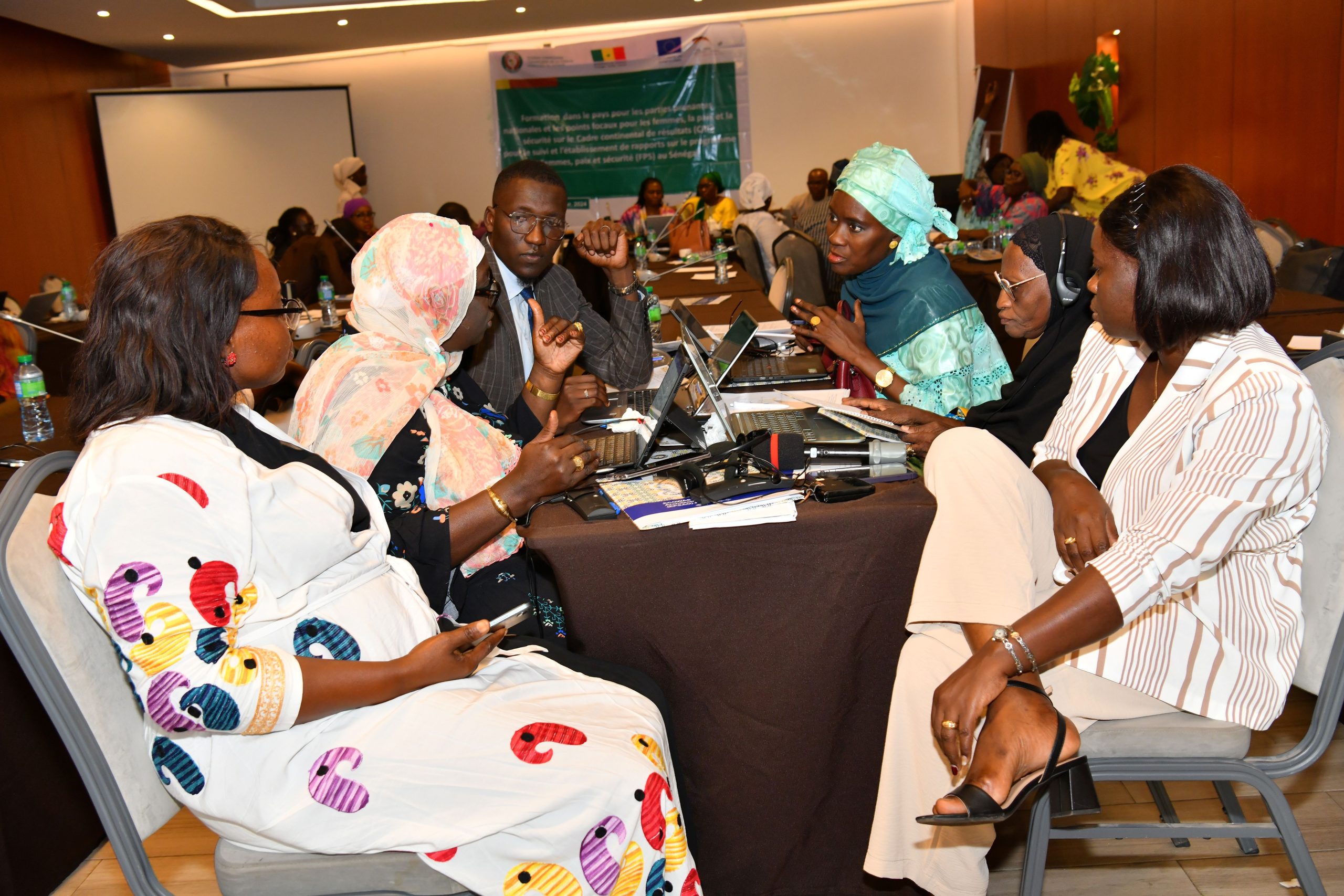ECOWAS Launches Capacity-Building Workshop in Senegal to Advance Women, Peace, and Security Agenda
07 Nov, 2024The ECOWAS Directorate of Humanitarian and Social Affairs, in partnership with the Ministry of Family and Solidarity in the Republic of Senegal, held a three-day Capacity Building Workshop on the Continental Results Framework (CRF) for Monitoring and Reporting on the Women, Peace, and Security (WPS) Agenda (UNSCR 1325 and other related Resolutions) from October 28 – 30, 2024, in Dakar, Senegal. The workshop which held at Axil Hotel in Dakar, was aimed at enhancing the capacity of National Stakeholders and strengthening their coordination in monitoring and reporting on the WPS agenda using the CRF tool.
In a welcome remarks, Mrs Regina Chika AJA-ORIUWA from the Division of Democracy and Good Governance in the Directorate of Political Affairs, representing Dr Sintiki Tarfa Ugbe, Director, Humanitarian and Social Affairs of the ECOWAS Commission, emphasized ECOWAS’s commitment in strengthening the accountability and commitment of member states toward the effective implementation of the WPS agenda using the CRF tool to bolster coordination, documentation and reporting on the implementation of the WPS agenda in Senegal. Recognizing the crucial contributions Senegalese women have made in mediation, conflict resolution, and social cohesion initiatives at all levels of society. She noted the timeliness of the training as being crucial in equipping the stakeholders with the needed capacities to document contributions systematically and measure collective progress.
Speaking on behalf of the GIZ-EPSAO Project, Ms. Tamwakat Elizabeth Golit, Women, Peace, and Security Expert (Embedded in the ECOWAS Commission), commended the ECOWAS Commission for sustaining the momentum in operationalizing the Continental Results Framework in the West Africa Region. She emphasized the importance of accurate data as being is critical in guiding the development and implementation of policies and for effective resource mobilization towards advancing the WPS agenda. While highlighting the alignment of Germany’s feminist development policy with the CRF to support rights, resources, and representation for women, she further re-iterated the commitment of GIZ in accompanying the ECOWAS Commission in implementing its WPS mandate.
In her opening remarks, Mrs. Maimouna DIEYE, Honourable Minister of Family and Solidarity, represented by Mme. Astou Fall, Technical Adviser to the Minister highlighted the commitment of the Government of Senegal to ensuring a reconciled, united and prosperous country through the dedication of a part of Senegal’s 2050 vision to the consolidation of national unity and solidarity by strengthening the security, peace and stability of the country. This is being done by placing women and young people at the heart of this newly initiated systemic transformation. This political will reinforces the strategic objectives of the 2nd National Action Plan for the implementation of Resolution 1325, which recalls the centrality of the role that women and girls play in conflict prevention and peace-building processes. She called on the ECOWAS Commission to further strengthen WPS intervention strategies in member states for effective implementation of the WPS agenda.
At the end of the workshop, Participants identified the need to organize a forum bringing together women leaders from the Southern part of Senegal, The Gambia and Guinea Bissau to build their capacity on mediation and negotiation to enable them effectively contribute in ending the prolonged conflicts affecting their communities. They also agreed to collaborate with the Ministry of Family and Solidarity to engage development partners in implementing its annual work plans
The workshop convened over 30 participants from government ministries, agencies, women and youth organizations, and CSOs. it was organized in collaboration with relevant Directorates and Agencies of the ECOWAS Commission with the support of the ECOWAS Peace and Security Architecture and Operations (EPSAO) Project -co-funded by the European Union and the German Federal Ministry for Economic Cooperation and Development (BMZ) and implemented by GIZ.





















